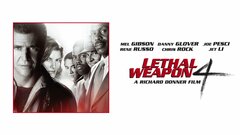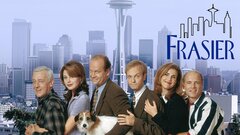Eddie Van Halen

Musician
Birth Date: January 26, 1955
Death Date: October 6, 2020 — 65 years old
Birth Place: Nijmegen, Gelderland, The Netherlands
Spouses: Valerie Bertinelli
Siblings: Alex Van Halen
Bands: Van Halen
For a generation of aspiring musicians and rock aficionados in the late 1970s and 1980s, Eddie Van Halen was the premier guitar hero of the day, one whose sonic palette covered everything from rock, R&B and dance to classically inspired pieces that redefined the use and sound of guitar in hard rock-n-roll. As leader and co-founder of Van Halen, he enjoyed considerable success for over three decades with such songs as "Jamie's Crying," "Dance the Night Away," "Jump" and "Best of Both Worlds," which were anchored by his fluid, supercharged guitar work and nimble manipulation of both frets and strings.
Relations within the group were often as fiery as Van Halen's playing, with no less than three singers, including David Lee Roth, Sammy Hagar, and Gary Cherone departing the group amidst heated in-fighting over the course of their history. Van Halen himself would suffer frequent health problems, including serious drug and alcohol addictions, during this period, but invariably rose again to re-establish himself as a guitar titan. Through it all, the guitarist remained untouched in regard to the innovation and inspiration he provided through his playing.
Born Edward Lodewijk van Halen in Amsterdam, The Netherlands on Jan. 26, 1955, he was the younger of two sons by Dutch musician Jan van Halen and his Dutch-Indonesian wife, Eugenia. The family relocated to Pasadena, CA in 1962, where Van Halen and his older brother, Alex, studied piano. After hearing the music of British Invasion acts like the Dave Clark Five and the Yardbirds, Van Halen began playing the drums, while Alex picked up the guitar. However, it soon became apparent that each brother was more proficient on the other's instrument, which began Van Halen's long association with the guitar. His childhood and teen years were marked by hours of practice, during which he honed his formidable technique.
In 1972, the Van Halen brothers formed their first group, initially called Genesis, with Eddie on vocals and guitar and Alex on drums. They quickly changed their moniker to Mammoth after learning of the British progressive rock group of the same name. However, Van Halen soon discovered that he preferred playing to singing, prompting a search for a new lead singer. A solution was found in David Lee Roth, who sang for another group in addition to owning a PA system that Mammoth would rent for their early gigs. The addition of bassist Michael Anthony set in stone the early, and for many, quintessential Van Halen lineup.
After changing their band name to Van Halen, the group performed throughout Southern California, eventually building a sizable following that flocked to see Eddie's guitar fireworks, which included tapping the guitar neck and volume swells (hammering the fretboard while working the volume knob to produce keyboard-like sounds). By the mid-1970s, they were playing large clubs while landing opening slots for such established acts as Santana and Nils Lofgren. Van Halen eventually attracted the attention of influential DJ Rodney Bingenheimer, who booked them into the Starwood Club, the epicenter of Los Angeles cutting-edge rock during the period. There, they met Gene Simmons of KISS, who funded their first demo tape. This initial recording failed to attract much attention from labels, but a meeting with Warner Bros. executives Ted Templeman and Mo Ostin, brokered by their manager Marshall Berle, earned them a contract with the venerable imprint. Their self-titled debut was released in 1978, firmly establishing them as a band on the rise in the hard rock world.
Van Halen would release four additional albums between 1979 and 1983 before finally breaking into the top of the mainstream charts with "Jump," their lead single from their sixth album, 1984. By this point, Eddie Van Halen had bolstered their core electric sound with layers of keyboards, which attracted the attention of a more pop-oriented audience that might have otherwise avoided their harder, heavier sound. The record peaked at No. 2 on the Billboard chart, one position behind Michael Jackson's Thriller (1983), which, ironically, featured an uncredited Eddie Van Halen on "Beat It."
At the same time, Van Halen was enjoying his own kind of fame off-stage by dating America's Sweetheart, "One Day at a Time" (CBS, 1975-1984) actress Valerie Bertinelli, whom he would marry in 1981. The couple, who generated considerable press interest in fan magazines, would have a son, Wolfgang, in 1991.
While things were going well in the rocker's personal life, the rise in the band's popularity also led to conflict between Van Halen and Roth, who saw their sudden success as a springboard to his solo career. Roth split from the act under a hail of acrimony in 1985, spurring the band to reach out to Sammy Hagar, former lead singer of one of Eddie's favorite acts, Montrose. The addition of the leather-lunged Hagar had a significant impact on Van Halen's sound, pushing it towards more straightforward arena-style rock and away from the flashier, R&B driven sound of their work with Roth. While the changes proved too dramatic for many diehard fans, the newly reconstituted Van Halen was an even more popular act than in its heyday with Roth, with all four of their albums together, from 1986's 5150 to 1995's Balance reaching the top spot on the Billboard albums chart. In 1992, they claimed their first Grammy for Best Hard Rock Performance with Vocal.
But as before, conflicts within the band itself led to the end of this popular arrangement. A series of business and personal decisions, including a reunion with Roth to record new material for a greatest hits album led to Hagar either quitting or being fired from the band in 1996, depending on who you asked. During this period, Van Halen was also struggling with unchecked addictions to alcohol and cocaine, which had a deleterious effect on both Hagar and longtime bassist Michael Anthony. The two singles with Roth, including "Me Wise Magic," rocketed to the top of the singles chart, but the reunion proved short-lived; by September of that year, Roth had departed from the act shortly after a contentious appearance at the MTV Movie Awards. To the surprise of many, Van Halen hired Gary Cherone of the pop-metal act Extreme as their new singer. The resulting album, Van Halen III, was poorly received by listeners, and Cherone was quickly dismissed from the band. For nearly a decade, Van Halen remained on hiatus, though the guitarist himself remained in the news for a variety of health problems.
In 1999, he underwent hip replacement surgery to replace years of damage incurred by the group's high-energy shows, which frequently featured Van Halen leaping from monitor stacks and other heights. Two years later, he revealed that he was undergoing treatment for tongue cancer, a result of his lengthy addiction to nicotine. Subsequent surgery removed nearly a third of his tongue, but he was declared cancer-free in 2002. With his health finally in check, Van Halen decided to tour again in support of a second greatest hits package, The Best of Both Worlds (2004), which prompted a reunion with Hagar. A successful national tour followed, but Van Halen's addiction issues brought not only the reunion with Hagar to a halt, but ended his lengthy marriage to Bertinelli in 2005. Plans for a 2007 reunion tour with Roth were quashed when Van Halen entered a six-month rehabilitation program that same year. Only Hagar and Anthony were in attendance when Van Halen was inducted into the Rock and Roll Hall of Fame in 2007.
Upon his return, Van Halen re-launched the reunion tour with Roth, but with one significant change: Michael Anthony had been summarily excised from the lineup and replaced by Van Halen's 15-year-old son, Wolfgang. The decision shocked many longtime fans, but few turned up the opportunity to see three-fourths of the original Van Halen lineup in concert during the 2007 and 2008 tour, which proved to be the highest grossing in the band's history. In 2012, Van Halen released A Different Kind of Truth, which rose to No. 2 on the Billboard charts. A subsequent tour in 2012 was mostly sold out until the band abruptly canceled its remaining 32 shows, citing their desire to rest after 18 months of touring and recording. In 2019, Eddie Van Halen announced that he had been undergoing treatment for throat cancer for the last several years. He died of the disease on October 6, 2020 at the age of 65.
By Paul Gaita.
Credits

Rock Royalty: Van Halen

Randy Rhoads: Reflections of a Guitar Icon

Two and a Half MenStream

SLC PunkStream

Lethal Weapon 4Stream








